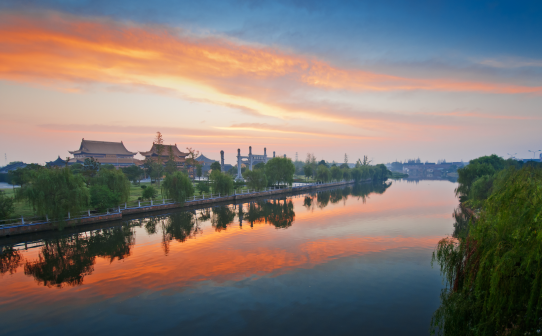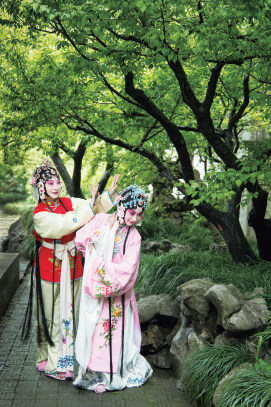历史文化

太仓距今已有4500多年历史。早在元明时期,太仓就是重要的海港和商埠,
史称“六国码头”,明代著名航海家郑和七下西洋由此扬帆起锚。明弘治十年
(1497)建太仓州。民国元年(1912)定名太仓县。1993年3月,撤县建
太仓市。
太仓因处娄江之东,古亦称娄东。自古人文荟萃,教泽绵长,形成了独具风
格的娄东文化。是江南丝竹的发源地,娄东文化的发祥地,又是神话传说牛
郎织女的降生地。
太仓自古以来文化艺术大家灿若群星,有明清文豪王世贞、吴梅村,复社领
袖张溥,明四家之一仇英,娄东画派王时敏、王鉴、王原祁,著名教育家暨
交通大学创始人唐文治,当代画家朱屺瞻、宋文治和中国新舞蹈艺术奠基人
吴晓邦等。
在科学领域,走出了被誉为“中国的居里夫人”的吴健雄,诺贝尔物理学奖获
得者朱棣文以及顾懋祥、陆佑楣、龚知本、唐孝威、唐孝炎、邹世昌、黄胜
年、吴建屏、杨胜利等11位两院院士。
Taicang has a history of more than 4,500 years. As early as in the
Yuan and Ming dynasties, Taicang was an important seaport and
business hub, known as the “dock of six kingdoms”. Zheng He, the
great navigator of the Ming Dynasty, started from Taicang in his seven
great naval expeditions. In 1497, the 10th year under the reign of
Emperor Hongzhi of the Ming Dynasty (1368-1644), Taicang Prefecture
was established. In the first year of the Republic of China (1912),
it was named Taicang County. In March 1993, Taicang was upgraded
from a county to a city.
Taicang is also called Loudong because it’s located east to the Loujiang
River. It has long been the home to a great number of talents,
benefiting from good education and creating the unique Loudong
Culture. It is the cradle of wonderful classical music and Loudong
Culture, and the birthplace of the myth of the Cowboy and Weaver
Girl.
Taicang has long been home to great cultural and art masters, such
as Wang Shizhen and Wu Meicun, litterateurs of the Ming and Qing
dynasties, Zhang Pu, head of Fu She (the Society of Classical Learning
Restoration), Qiu Ying, one of the Top Four Painters in the Ming
Dynasty, Wang Shimin, Wang Jian and Wang Yuanqi, representatives
of Loudong painting school, Tang Wenzhi, famous educator and
founder of Jiao Tong University, Zhu Qizhan and Song Wenzhi,
modern painters, and Wu Xiaobang, founder of the new dancing arts
of China.
In the scientific field, Taicang has nurtured 11 academicians of the
Chinese Academy of Engineering and Chinese Academy of Sciences,
including Chien-Shiung Wu (Wu Jianxiong), who is honored the “Mrs.
Courier of China”, Steve Chu (Zhu Diwen), the winner of the Nobel
Prize in Physics, and Gu Maoxiang, Lu Youmei, Gong Zhiben, Tang
Xiaowei, Tang Xiaoyan, Zou Shichang, Huang Shengnian, Wu Jianping
and Yang Shengli.
